Booz Allen Hamilton (NYSE:BAH) Financial Performance and Market Position
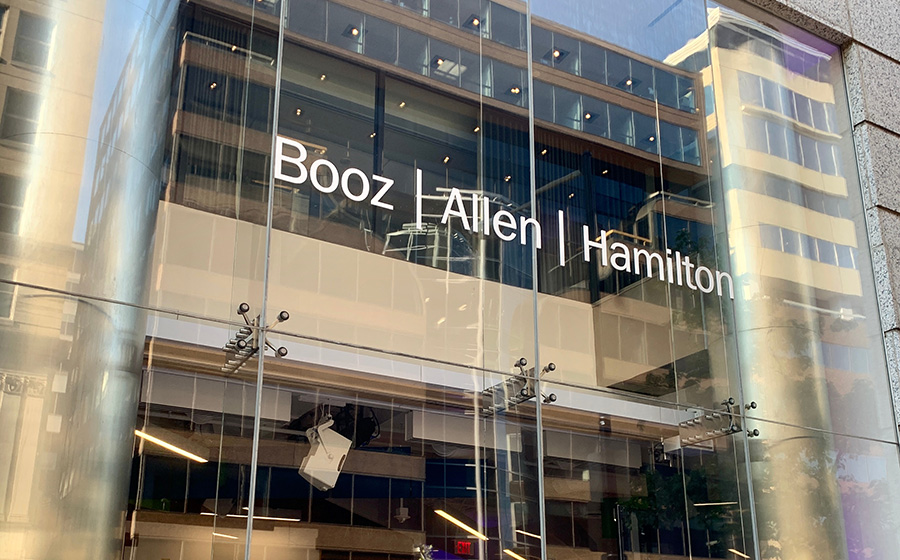
- Earnings Per Share (EPS) of $1.45, slightly below the estimated $1.48, with a history of exceeding expectations.
- Revenue of approximately $2.92 billion, a 13.5% increase compared to the previous year, demonstrating capacity for growth.
- Price-to-Earnings (P/E) ratio of approximately 19.44, indicating the market's valuation of its earnings.
Booz Allen Hamilton (NYSE:BAH) is a leading consulting firm that primarily serves the U.S. government. The company is renowned for its extensive consulting services, with long-term government contracts making up 98% of its revenue. This focus ensures revenue stability, as highlighted by its consistent financial performance. Booz Allen operates in the competitive Zacks Consulting Services industry, where it has demonstrated strong growth.
On January 31, 2025, Booz Allen Hamilton reported earnings per share (EPS) of $1.45, slightly below the estimated $1.48. Despite this, the company has a history of exceeding expectations, as seen in its fiscal 2025 third quarter. During this period, Booz Allen reported an adjusted EPS of $1.55, surpassing the forecasted $1.52, and marking a 4.73% earnings surprise. This performance reflects the company's ability to deliver strong financial results.
Booz Allen Hamilton generated revenue of approximately $2.92 billion, which fell short of the estimated $3.09 billion. However, this figure still represents a 13.5% increase compared to the previous year. The company has consistently surpassed consensus revenue estimates in each of the last four quarters, demonstrating its capacity for growth. In the quarter ending December 2024, Booz Allen's revenue was 2.71% above the Zacks Consensus Estimate.
Despite the positive quarterly performance, Booz Allen Hamilton's stock price experienced a decline of 0.55%. This drop occurred as the company's future guidance fell short of the elevated expectations set by analysts. The market's reaction underscores the importance of meeting or exceeding analyst expectations for future performance, even when current results are strong.
Booz Allen Hamilton's financial metrics provide further insight into its market position. The company has a price-to-earnings (P/E) ratio of approximately 19.44, indicating the market's valuation of its earnings. Its price-to-sales ratio stands at about 1.42, while the enterprise value to sales ratio is around 1.40. These figures suggest how investors value the company's sales and overall valuation. Additionally, Booz Allen's debt-to-equity ratio of approximately 0.25 indicates a relatively low level of debt compared to equity, reflecting financial stability.
| Symbol | Price | %chg |
|---|---|---|
| 6532.T | 6840 | -0.75 |
| MEJA.JK | 162 | 0 |
| 4373.T | 4105 | 2.07 |
| 9757.T | 2498 | -0.16 |
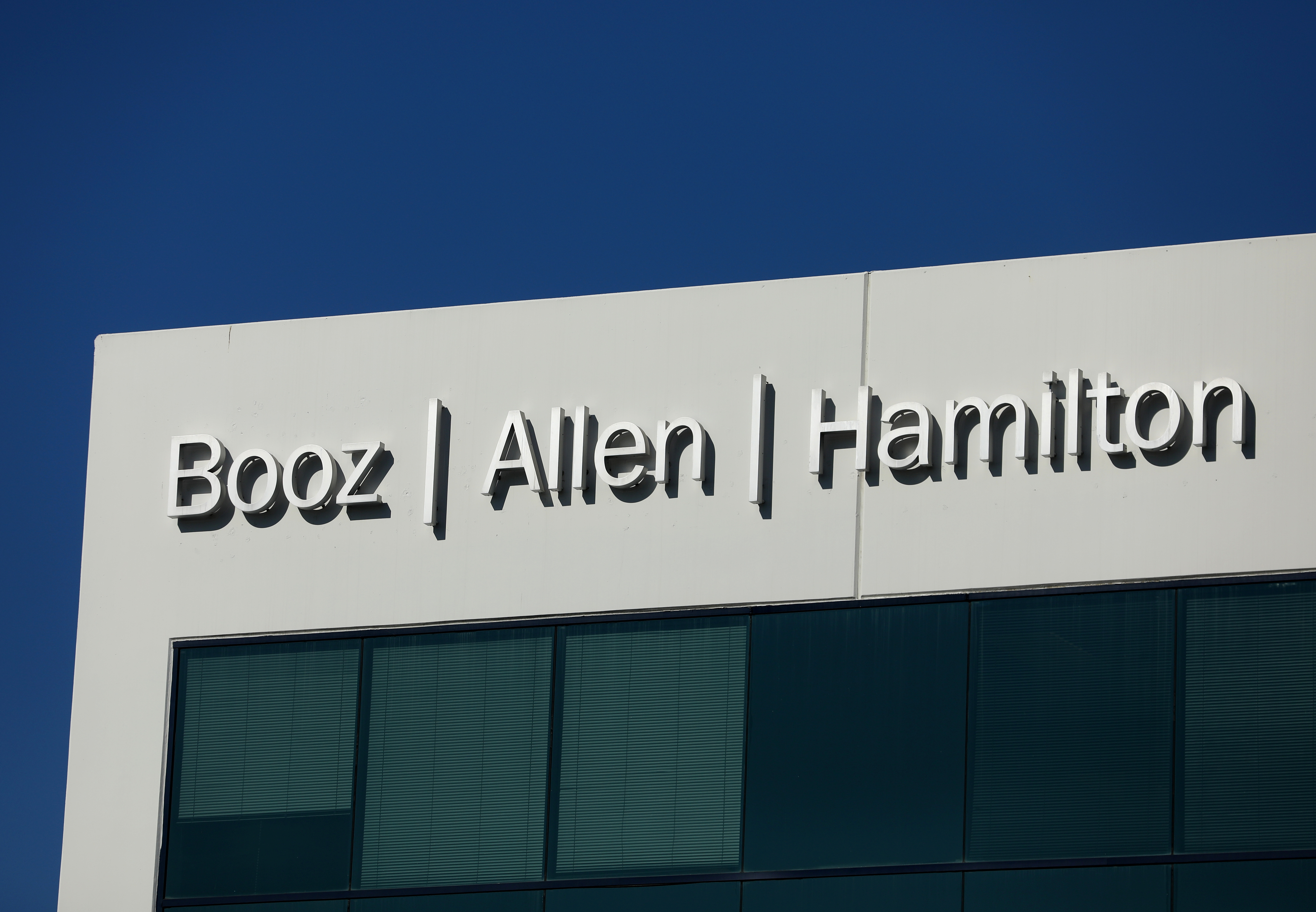
Booz Allen Hamilton Holding Corporation (NYSE:BAH) Financial Performance Analysis
- Booz Allen Hamilton's ROIC of 17.85% significantly surpasses its WACC of 5.09%, indicating efficient capital utilization.
- Compared to peers, BAH's ROIC to WACC ratio of 3.50 showcases its superior return on invested capital.
- While competitors like Leidos Holdings, CACI International, and SAIC also generate returns above their cost of capital, BAH leads in efficiency.
Booz Allen Hamilton Holding Corporation (NYSE:BAH) is a management and information technology consulting firm, primarily serving the U.S. government in defense, intelligence, and civil markets. It competes with firms such as Leidos Holdings, CACI International, and Science Applications International Corporation, offering similar consulting and technology services to government and commercial clients.
In evaluating Booz Allen Hamilton's financial performance, the Return on Invested Capital (ROIC) is a key metric. BAH's ROIC stands at 17.85%, which is significantly higher than its Weighted Average Cost of Capital (WACC) of 5.09%. This results in a ROIC to WACC ratio of 3.50, indicating that BAH is generating returns well above its cost of capital.
When comparing BAH to its peers, Leidos Holdings has a ROIC of 14.48% and a WACC of 6.37%, resulting in a ROIC to WACC ratio of 2.27. This shows that while Leidos is also generating returns above its cost of capital, it is not as efficient as BAH in doing so.
CACI International, another peer, has a ROIC of 8.62% and a WACC of 6.11%, leading to a ROIC to WACC ratio of 1.41. This suggests that CACI is generating returns above its cost of capital, but at a lower efficiency compared to BAH.
Science Applications International Corporation (SAIC) has a ROIC of 12.41% and a WACC of 5.24%, resulting in a ROIC to WACC ratio of 2.37. While SAIC is performing well, BAH's higher ratio indicates superior capital utilization.

Booz Allen Hamilton Holding Corp (NYSE:BAH) Insights and Financial Overview
- CEO Horacio Rozanski's significant stock purchase of 23,800 shares at $84.66 each, increasing his total ownership to 687,745 shares.
- The Q2 2026 earnings call on October 24, 2025, provided insights into the company's financial performance and strategic plans.
- Current trading price of $82.82 with a yearly high of $190.59 and a low of $82.23, indicating significant stock price volatility.
Booz Allen Hamilton Holding Corp (NYSE:BAH) is a management and information technology consulting firm, primarily serving the U.S. government in defense, intelligence, and civil markets. Competing with giants like Accenture and Deloitte, the company has recently seen significant actions from its CEO, Horacio Rozanski, who made a notable purchase of 23,800 shares at $84.66 each, increasing his total ownership to 687,745 shares.
The recent Q2 2026 earnings call on October 24, 2025, was a pivotal event for Booz Allen Hamilton. This call, featuring top executives including Rozanski, provided a platform for the company to discuss its financial performance and strategic plans, offering insights into its future direction.
Currently, BAH is trading at $82.82 on the NYSE, experiencing a slight decrease of 0.01% today. The stock's trading range for the day has been between $82.23 and $85.04. Over the past year, BAH has seen a high of $190.59 and a low of $82.23, indicating significant volatility in its stock price.
Booz Allen Hamilton's market capitalization stands at approximately $10.35 billion, reflecting its size and influence in the consulting industry. The trading volume today is 2,383,592 shares, indicating active investor interest which can impact the stock's price movement and overall market perception.
Rozanski's recent stock purchase and the company's strategic discussions during the earnings call highlight Booz Allen Hamilton's commitment to growth and shareholder value. Investors and analysts closely monitor these developments to assess the company's future performance and potential investment opportunities.
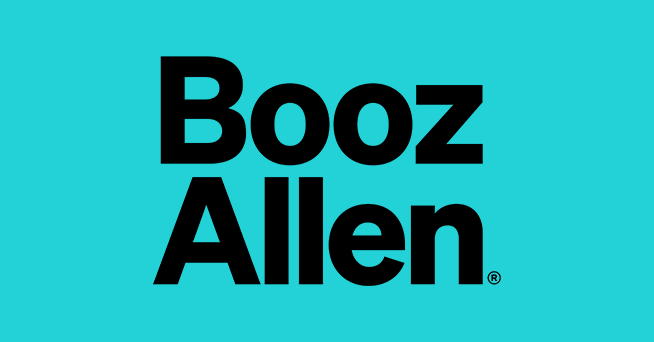
Booz Allen Hamilton (NYSE:BAH) Faces Challenges Despite Growth in National Security Portfolio
- Booz Allen Hamilton's stock dropped 8.6% after reporting disappointing fiscal Q2 2026 earnings, missing expectations with an adjusted profit of $1.49 per share on sales of $2.9 billion.
- The company's GAAP earnings fell to $1.42 per share, a 53% decrease from the previous year, attributing weak results to a "continued funding slowdown."
- Despite challenges in the civil business, Booz Allen's national security portfolio showed solid growth, with the stock currently priced at $91.40, reflecting an approximately -8.86% decrease.
Booz Allen Hamilton (NYSE:BAH) is a management and information technology consulting firm, primarily serving the U.S. government in defense, intelligence, and civil markets. The company competes with firms like Accenture and Deloitte. On October 24, 2025, Stifel Nicolaus set a price target of $106 for BAH, suggesting a potential upside of 15.97% from its trading price of $91.40.
Despite this optimistic outlook, BAH's stock experienced a significant decline, dropping 8.6% by late morning after reporting disappointing fiscal Q2 2026 earnings. The company reported an adjusted profit of $1.49 per share on sales of $2.9 billion, missing expectations of $1.51 per share on nearly $3 billion in sales. This miss contributed to the stock's decline.
The company's GAAP earnings fell to $1.42 per share, a 53% decrease from the previous year. Adjusted earnings saw a decline of less than 18%, while revenue decreased by 8%. Booz Allen attributed these weak results to a "continued funding slowdown," which was not related to the government shutdown that occurred after the quarter ended.
Despite these challenges, Booz Allen's national security portfolio showed solid growth. However, the civil business faced difficulties, contributing to the overall downturn. The stock for BAH is currently priced at $91.40, reflecting a decrease of 8.89 points or approximately -8.86% in percentage terms. During the trading day, the stock reached a low of $88.12 and a high of $96.13.
Over the past year, BAH's stock has seen a high of $190.59 and a low of $88.12. The company's market capitalization stands at approximately $11.26 billion. The trading volume for the day is 8,341,547 shares on the NYSE, indicating significant investor activity following the earnings report.
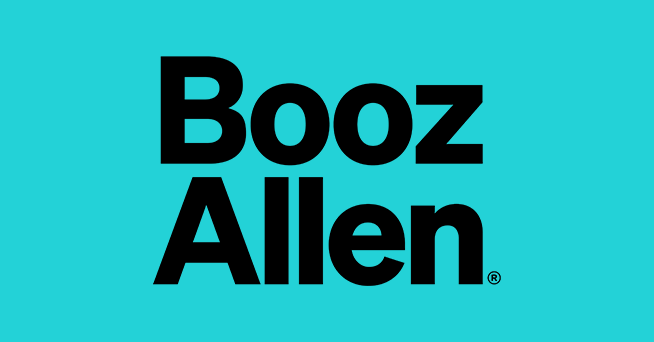
Booz Allen Hamilton (NYSE:BAH) Receives New Price Target from UBS
- Gavin Parsons from UBS sets a new price target for Booz Allen Hamilton (NYSE:BAH) at $119, indicating an expected increase of about 8.74%.
- Booz Allen reports a mixed first-quarter fiscal 2026 performance with EPS increasing by 7.25% to $1.48, but revenue slightly declining by 0.6%.
- The company's fiscal year 2026 EPS is projected to be between $6.20 and $6.55, with concerns over revenue dips and weaker backlog metrics clouding the outlook.
On July 28, 2025, Gavin Parsons from UBS set a new price target for Booz Allen Hamilton (NYSE:BAH) at $119. At the time, the stock was trading at $109.44, indicating an expected increase of about 8.74%. Booz Allen Hamilton is a management and information technology consulting firm, competing with companies like Accenture and Deloitte.
Booz Allen recently reported its first-quarter fiscal 2026 results, showing a mixed performance. The company's earnings per share (EPS) increased by 7.25% to $1.48, surpassing the Zacks Consensus Estimate by 1.4%. Despite this positive earnings report, the stock price has remained unchanged since the announcement, currently priced at $107.76.
On the revenue side, Booz Allen experienced a slight decline of 0.6%, bringing in $2.92 billion, which was 0.5% below the consensus estimate. The company's total backlog increased by 10.7% to $38 billion, but the funded backlog and book-to-bill ratio saw a year-over-year decline, raising concerns about future growth.
Looking forward, Booz Allen's fiscal year 2026 EPS is projected to be between $6.20 and $6.55, with revenue growth expected to range from 0% to 4%. The company also anticipates generating free cash flow between $900 million and $1 billion. Despite the positive earnings performance, concerns over revenue dips and weaker backlog metrics have clouded the fiscal 2026 outlook.
The stock has fluctuated between a low of $107.11 and a high of $112.69 during the day. Over the past year, BAH has reached a high of $190.59 and a low of $98.95. The company's market capitalization is approximately $13.37 billion, with a trading volume of 1,063,373 shares on the NYSE.
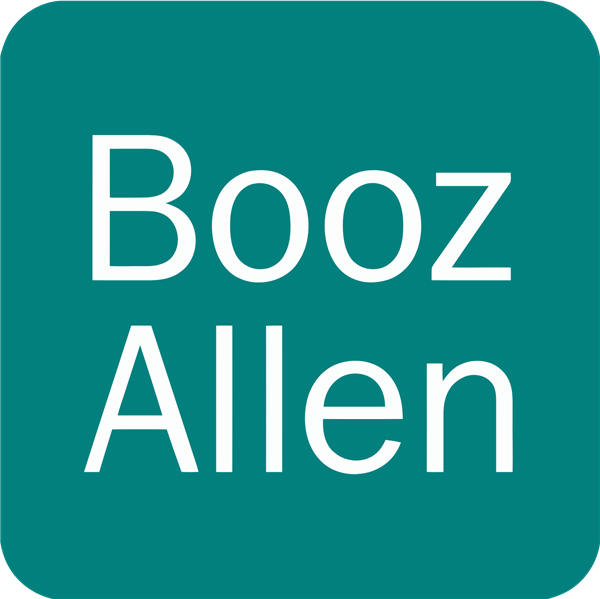
Booz Allen Hamilton Holding Corporation (NYSE:BAH) Earnings Preview
- Booz Allen Hamilton is expected to report a 5.1% increase in EPS, indicating positive growth.
- Revenue is projected to reach approximately $2.95 billion, with a slight anticipated decline.
- The company's debt-to-equity ratio is high at 4.21, but it maintains a strong current ratio of 1.79.
Booz Allen Hamilton Holding Corporation, listed on the NYSE as BAH, is a management and information technology consulting firm. It provides services primarily to the U.S. government, including defense, intelligence, and civil markets. The company competes with other consulting firms like Accenture and Deloitte. Booz Allen Hamilton is set to release its quarterly earnings on July 25, 2025, before the market opens.
Wall Street analysts estimate Booz Allen Hamilton's earnings per share (EPS) to be $1.46, while the Zacks Consensus Estimate suggests $1.45. This marks a 5.1% increase from the previous year, indicating positive growth. Over the past 30 days, analysts have revised the EPS estimate upward by 0.3%, reflecting a positive reassessment of the company's performance.
The company's revenue is projected to reach approximately $2.95 billion, although a slight decline of 0.1% to $2.94 billion is anticipated for the quarter ending June 2025. Despite this, Booz Allen Hamilton's price-to-earnings (P/E) ratio of 15.72 suggests a reasonable market valuation of its earnings. The price-to-sales ratio of 1.20 indicates how much investors are willing to pay per dollar of sales.
Booz Allen Hamilton's enterprise value to sales ratio stands at 1.48, considering its debt and cash. The enterprise value to operating cash flow ratio is 17.56, reflecting the company's valuation in relation to its cash flow from operations. The company's earnings yield is 6.36%, indicating the return on investment for shareholders.
The company's debt-to-equity ratio is notably high at 4.21, showing a significant reliance on debt financing. However, with a current ratio of 1.79, Booz Allen Hamilton demonstrates a strong ability to cover its short-term liabilities with its short-term assets. The upcoming earnings report could influence the stock's price movement, with management's discussion playing a crucial role in determining future projections.
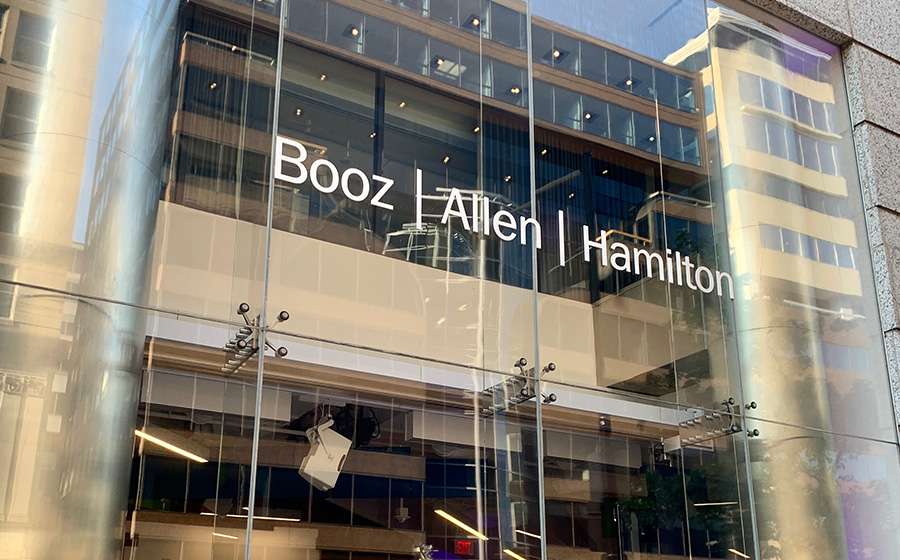
Booz Allen Hamilton's Strategic Expansion in Venture Capital
- Booz Allen Hamilton (NYSE:BAH) upgrades its venture capital commitment to $300 million, aiming for growth and innovation.
- The stock price of Booz Allen Hamilton is currently at $109.32, with minor fluctuations indicating market volatility.
- Booz Allen's market capitalization stands at approximately $13.56 billion, showcasing its significant industry presence.
Booz Allen Hamilton, trading on the NYSE under the symbol BAH, is a management and information technology consulting firm. The company provides services primarily to the U.S. government in defense, intelligence, and civil markets. Booz Allen competes with other consulting giants like Accenture and Deloitte. Recently, William Blair upgraded NYSE:BAH to an "Outperform" rating, with the stock priced at $109.32 at the time of the upgrade.
Booz Allen's recent decision to triple its venture capital commitment from $100 million to $300 million highlights its strategic focus on expanding its influence in the venture capital space. This move aligns with the company's efforts to enhance its capabilities and adapt to the evolving market landscape. The increased investment could potentially drive future growth and innovation for Booz Allen.
The stock price of NYSE:BAH is currently $109.32, showing a slight decrease of 0.01%. Today, the stock has fluctuated between a low of $108.76 and a high of $110.70. Over the past year, BAH has experienced a high of $190.59 and a low of $98.95. These fluctuations indicate the stock's volatility and the market's response to Booz Allen's strategic decisions.
Booz Allen's market capitalization is approximately $13.56 billion, reflecting its significant presence in the consulting industry. The company's trading volume on the NYSE today is 1,429,058 shares, indicating active investor interest. This level of trading activity suggests that investors are closely monitoring Booz Allen's performance and strategic moves, such as its increased venture capital commitment.

Booz Allen Hamilton Holding Corporation's Financial Overview and Outlook
- Earnings Per Share (EPS) of $1.61, surpassing the estimated $1.59, indicating a positive trend in financial performance.
- Revenue of $2.97 billion fell short of the estimated $3.16 billion, missing the Zacks Consensus Estimate by 1.50%.
- Projected adjusted EPS for fiscal 2026 between $6.20 and $6.55, with revenue expectations ranging from $12 billion to $12.5 billion, below analysts' forecasts.
Booz Allen Hamilton Holding Corporation, listed as NYSE:BAH, is a prominent consulting firm and government contractor based in McLean, Virginia. The company specializes in providing management and technology consulting services to the U.S. government and commercial clients. Booz Allen Hamilton competes with other consulting giants like Accenture and Deloitte in the industry.
On May 23, 2025, Booz Allen Hamilton reported earnings per share (EPS) of $1.61, surpassing the estimated $1.59. This marks a positive trend, as the company has exceeded consensus EPS estimates three times in the past four quarters. Despite this, the company's revenue of $2.97 billion fell short of the estimated $3.16 billion, missing the Zacks Consensus Estimate by 1.50%.
The company's fiscal 2026 outlook has raised concerns among investors. Booz Allen Hamilton projects adjusted EPS between $6.20 and $6.55, with revenue expected to range from $12 billion to $12.5 billion. These figures are below analysts' expectations of $6.92 EPS and $12.82 billion in revenue, leading to a decline in the company's stock during pre-market trading.
CEO Horacio Rozanski attributes the disappointing outlook to the Trump administration's cost-cutting measures, which have impacted contracts with civilian agencies. In response, Booz Allen Hamilton plans to restructure its civil business, implementing cost reductions and layoffs. CFO Matt Calderone announced a 7% workforce reduction in the first quarter, primarily affecting the civil business.
Despite these challenges, Booz Allen Hamilton anticipates growth in its defense and intelligence segments. The company's financial metrics, such as a P/E ratio of 16.4 and a price-to-sales ratio of 1.20, reflect the market's valuation of its earnings and revenue. Additionally, the company's debt-to-equity ratio of 2.97 highlights its financial leverage, while a current ratio of 1.57 indicates its ability to cover short-term liabilities.







